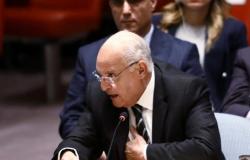Emmanuel Macron arrived in Mongolia on Sunday May 21 for a brief but symbolic visit, the first by a French president to this landlocked country between China and Russia and in which Westerners are showing growing interest. The French head of state landed in the capital, Ulaanbaatar, shortly after 6:30 p.m. (12:30 p.m. Paris time) after having participated, since Friday, in the G7 summit in the Japanese city of Hiroshima.
Since the beginning of the Russian invasion of Ukraine in February 2022, France has multiplied its efforts to speak to countries that have not clearly condemned the war led by Moscow. The visit to Mongolia falls within this context. Paris also aims with this trip to strengthen bilateral ties in terms of ecological transition, agriculture, agri-food and civil security.
In Ulaanbaatar, where he will only spend the evening, Mr. Macron is due to meet and then have dinner with President Ukhnaagiin Khürelsükh, the Elysee said. He must also visit the Genghis-Khan Museum, named after the great Mongol conqueror of the 13th century.e century. The institution will lend part of its collection to the Nantes History Museum, in western France, for an exhibition scheduled for October. The Head of State will also have a meeting with the Mongolian Prime Minister, Luvsannamsrai Oyun-Erdene. He will leave for Paris at the end of the evening.
Read the review: Article reserved for our subscribers Genghis Khan defies Chinese censorship at the Nantes History Museum
A uranium mine project
The French presidency mentioned a “very important issue” on the “geostrategic plan”which is in line with Paris’ desire to “to loosen the constraint exerted on Russia’s neighbors and open up to them the choice of their options”. Mongolia is also part of the “strategy of diversification of European supplies in order to guarantee our energy sovereignty”, adds the Elysée. The French nuclear group Orano is working on a uranium mine project on Mongolian territory, potentially one of the largest in the world.
According to the Elysée, the other challenge of the visit will be to encourage foreign investment in Mongolia in the fight against global warming, to which the country, semi-desert and subject to extreme temperatures, is particularly vulnerable. At the bilateral level, Paris believes that there are “very important possibilities of cooperation” since Mongolia, “90% dependent on coal for its electricity”has a ” issue “ of “decarbonization of its economy”.
Read also: Article reserved for our subscribers In Mongolia, copper, a raw material for development
Mongolia has already been the subject of growing interest in recent years by the United States, as part of its strategy to thwart the rise of Beijing. Currently, 86% of Mongolia’s total exports, all goods combined, go to China. Half of these Chinese purchases are coal.







